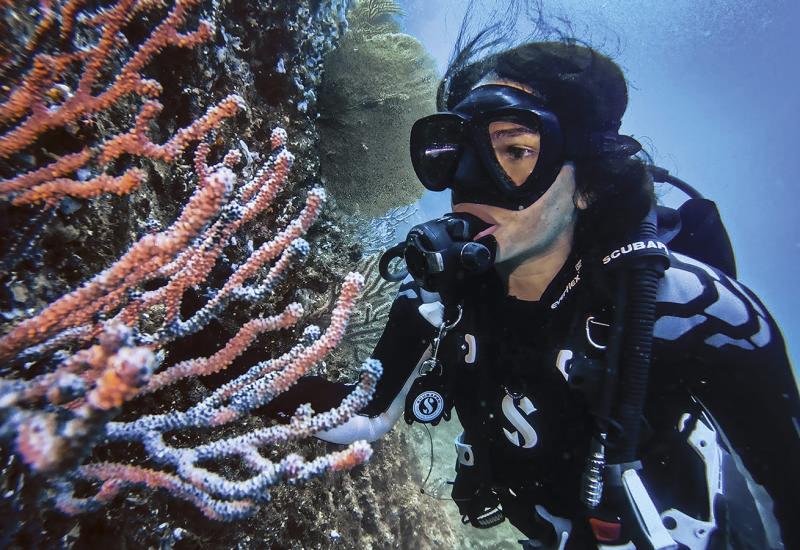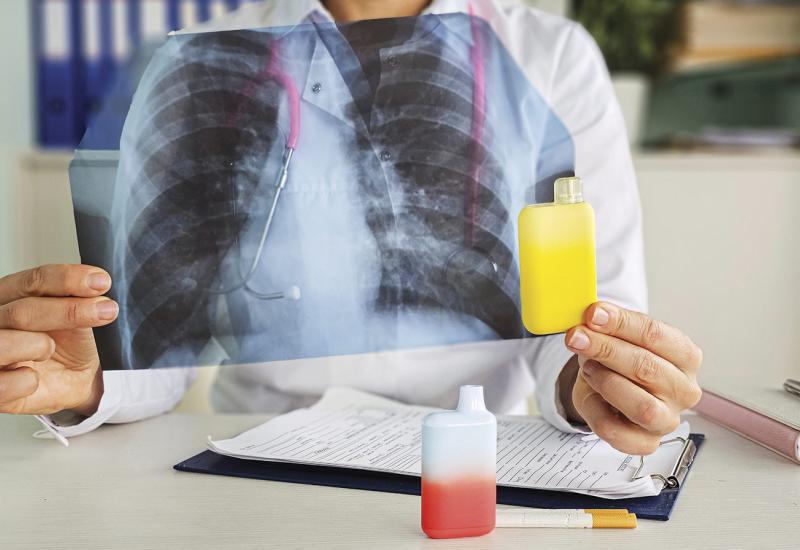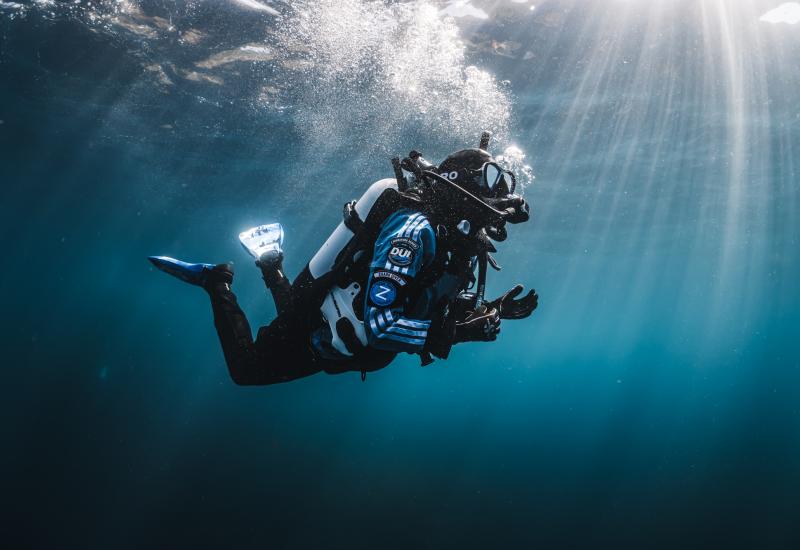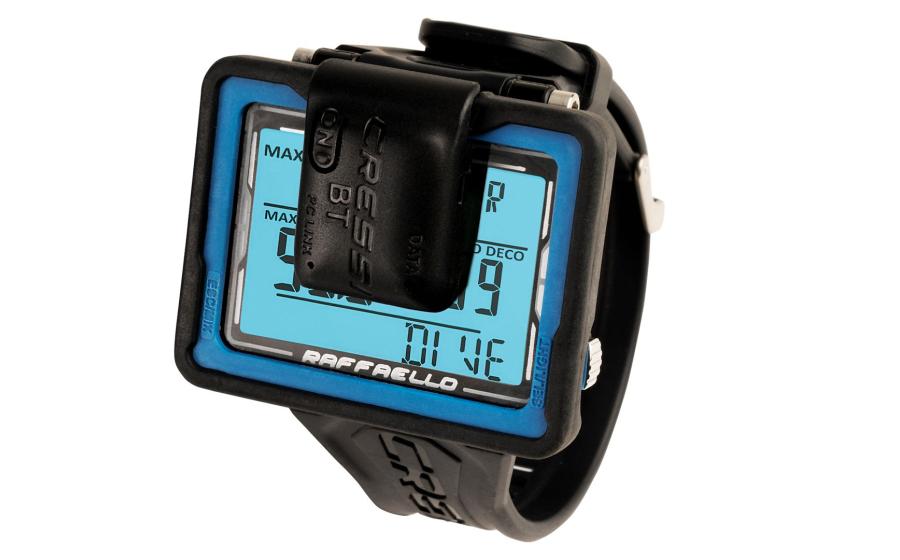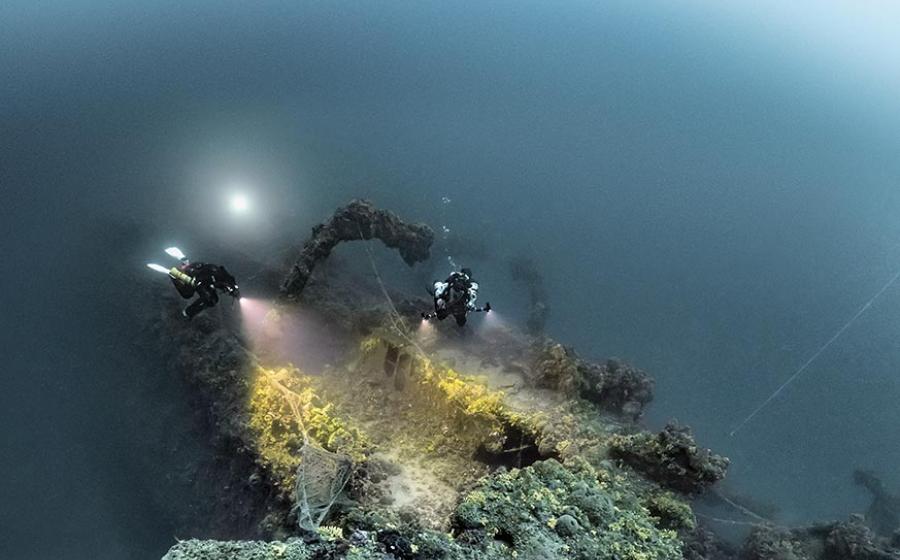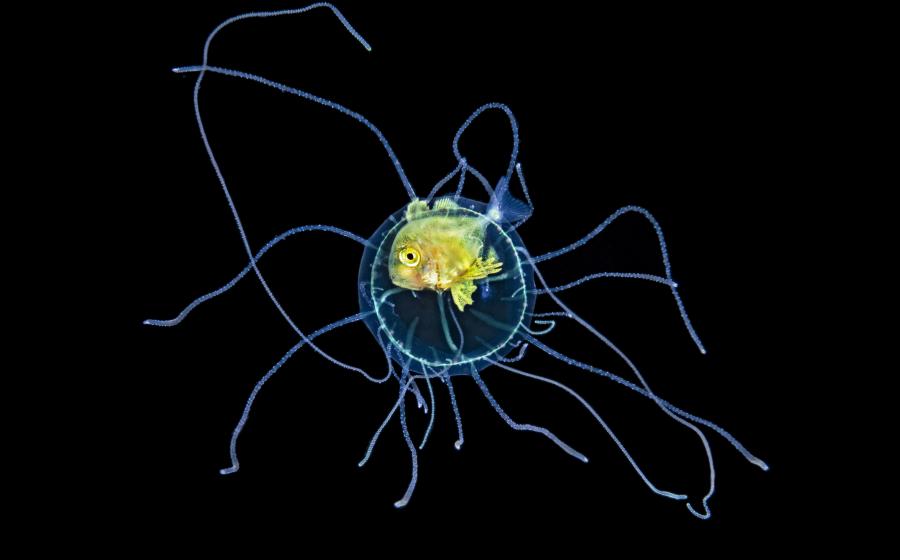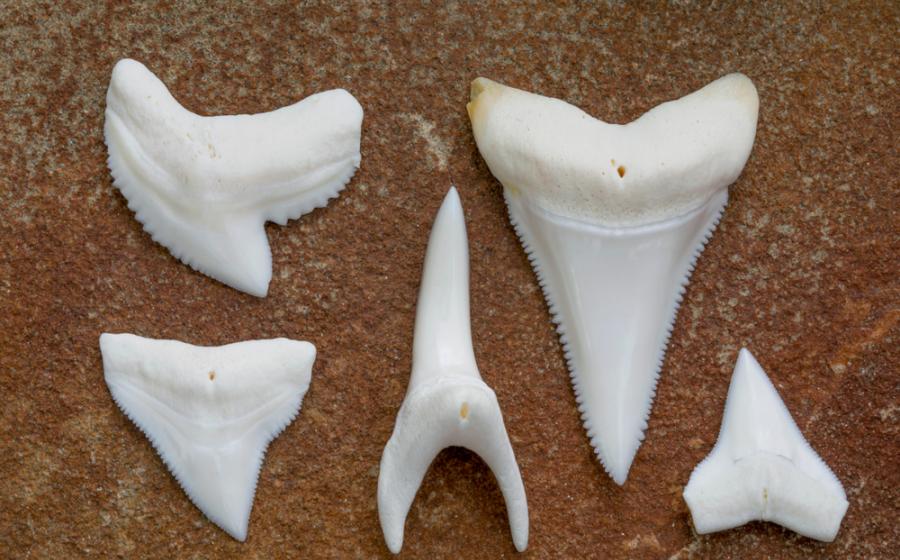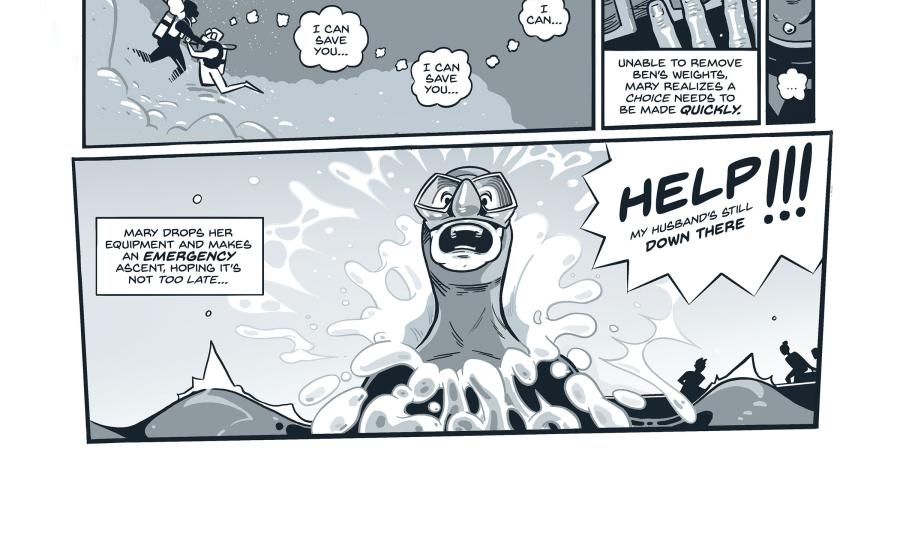The Joy of Mentoring New Divers

Annie CrawleyA divemaster with the Galapagos Sky liveaboard helps a diver work on their trim during a safety stop at Darwin Island, Galapagos Islands.
Learning to scuba dive changed my life. From the moment I breathed underwater for the first time, I found home. I went from a PADI Open Water Diver to divemaster in six months and spent the next year gaining experience and qualifications. This August marks my 30th anniversary as a PADI Master Scuba Diver Trainer and my 32nd year as a diver. I continue to mentor divers of all ages and levels because it’s a rewarding role to guide someone on their diving journey as you contribute to their diving success.
Regardless of your diving path, mentors play an important role in how you explore new destinations and dive conditions. They give guidance, offer encouragement, and invest time, energy and expertise to help others become better divers while also gaining personal fulfillment and satisfaction. They can be found in the pages of this magazine, at your local dive shop, on social media feeds and running dive operations around the world.
Shaping The Culture
Scuba diving involves inherent risks. Proper training and guidance are essential for the safety of new divers. As a mentor, you contribute to a culture of safety by sharing your experience to help others understand safety protocols, equipment usage and diving techniques.
Sharing Passion
Mentoring new divers gives you the opportunity to share your love for diving with others. By passing on your enthusiasm and knowledge, you can inspire them to develop their own passion for diving and create a sense of camaraderie within the diving community. Whether you are interested in coral or kelp restoration, underwater cleanups or creating marine protected areas, you have an opportunity to share your interests when you mentor divers.
Related Reading: Buddy 101: How to Dive With Someone New
Building A Diving Community
Mentoring fosters a sense of community and connection among divers. Helping new divers builds a supportive network where experienced divers assist and guide beginners. This community atmosphere promotes collaboration, knowledge sharing and a sense of belonging within our diving world.
Personal Growth
Guiding other divers can also be personally fulfilling and rewarding. Sharing your expertise and seeing the progress and growth of new divers brings a sense of accomplishment. It also deepens your own understanding and knowledge of diving as you articulate concepts and answer questions posed by newer divers.
You do not need to be a dive professional to mentor another diver, but you do need excellent diving skills and problemsolving capabilities. Being a mentor means taking on a role of guidance, support and knowledge sharing for someone who is less experienced or seeking to develop in a particular area. In the program I run in my community, we often have rescue divers act as role models. This solidifies their rescue training as well.
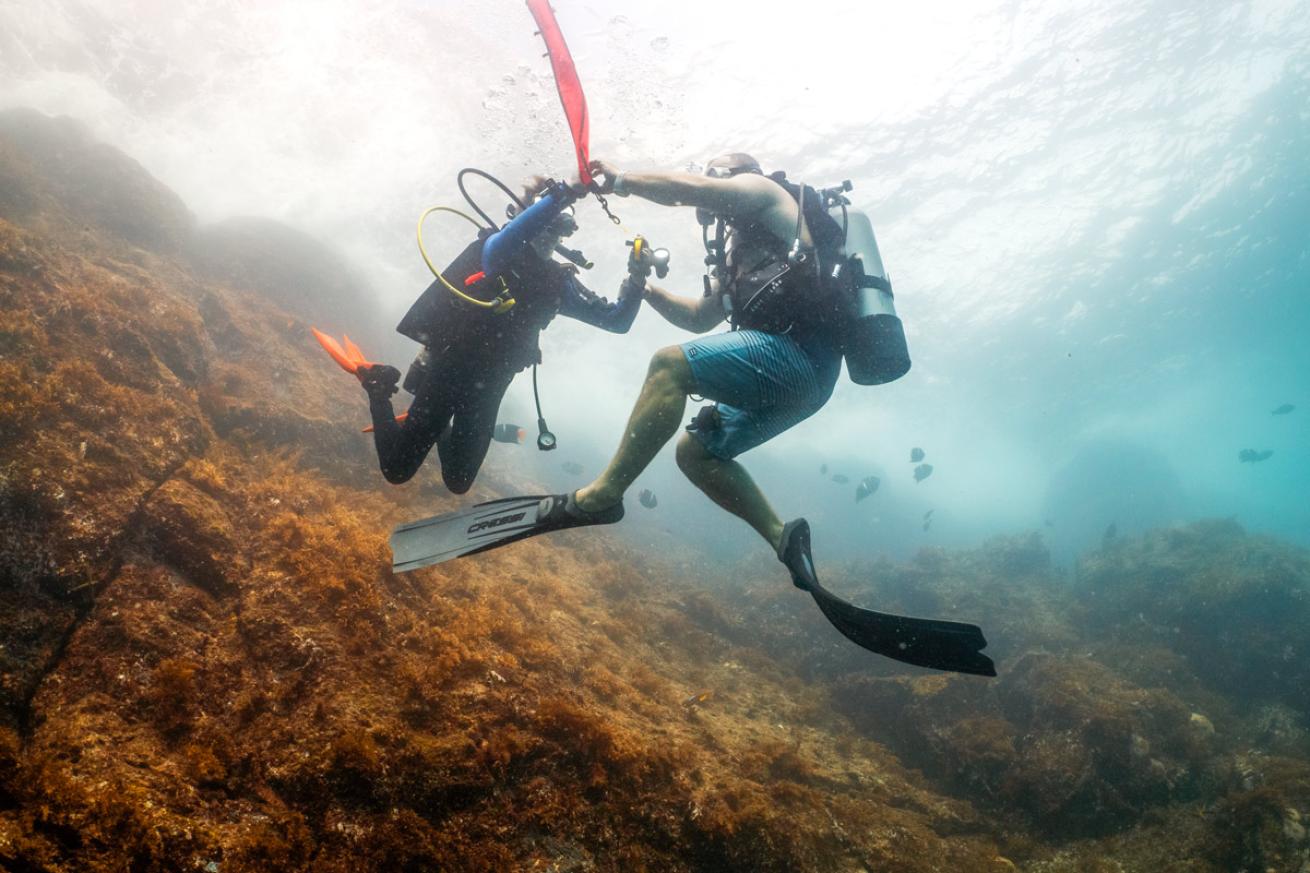
Annie CrawleyA divemaster and liveaboard guest aboard Quino el Guardian practice deploying a surface marker buoy at depth with a reel at a dive site in the Sea of Cortez.
Becoming a dive professional takes mentoring to the next level. During your PADI Divemaster, Assistant Instructor and Instructor Development Courses you will learn how to teach, communicate and lead. These skills are crucial for not only instructing students but managing diving groups and providing clear guidance underwater.
The path to becoming a dive pro involves continuous learning, staying updated on industry practices and adapting to changing environments. Your enthusiasm for diving and sharing that passion with others will contribute to your success as a professional.
Although logged dives are important proof of your training level and experience, it’s not just numbers that matter. You will learn different things based on varying conditions. Coral reefs in the Caribbean are different from those around Indonesia, Papua New Guinea or the Maldives. Upwellings, currents and other local considerations can only be understood with experience.
Related Reading: Everything You Need to Know About Diving from a Rigid Hull Inflatable Boat
Seeking out different environments and conditions gives you a broader understanding of diving techniques, challenges and safety measures in a variety of locations. Although you may be familiar with drysuit diving in Southern California, when you transition to colder waters in the Pacific Northwest, Canada, the Arctic or Antarctica, you may want to seek a mentor or additional training to help you understand the differences in conditions and locations.
If you have a genuine desire to share your knowledge, passion, and love for scuba diving with others, it might be the perfect time to explore becoming a dive professional.
Pro Tip
You know you are ready to be a mentor when you are waiting for everyone else to finish setting up their gear and you find yourself answering questions, giving tips for the dive and sharing ideas to make someone more comfortable before getting in the water.


